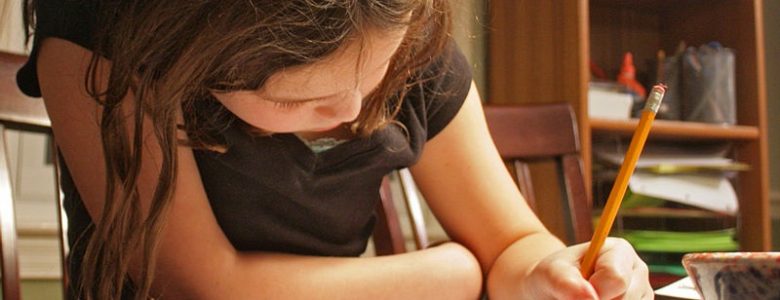How homeschooling affects marriage
Why would a happily married couple, busy with work and children and household chores, ever think homeschooling would be a good use of any extra minutes? Wouldn’t homeschooling upset the carefully maintained family rhythm? Do couples considering teaching their children at home wonder if their relationship will be impacted? There are at least two areas that absolutely shape how homeschool and marriage intersect; core beliefs and personal character strengths bring both challenge and opportunity to the homeschool marriage.
Homeschooling challenges your belief systems
Homeschooling challenges belief systems. What couples feel about religion, politics, gender roles, finances or education will emerge whether they’ve ever discussed these issues before or not. Even when the couple holds conflicting views, these beliefs can bring a stronger structure to their marriage and allow them to discover a framework for education, if each can let go of their right to be right and find the intersection of agreement.
Religious and political view
The homeschool movement of the past thirty years or so has traditionally been led by fundamental, evangelical, politically conservative Christians. Regardless of personal stance on social issues, every couple considering homeschool should be grateful to this group for their bulldog efforts, as that is in large part why homeschool is a legal and accessible option for anyone in the U.S. today. Families with more liberal views and different religious backgrounds are now choosing to homeschool, and may be doing so for reasons other than religion or politics. Either that husband or wife may feel uncertain how they will “fit” in the established homeschool community, but one of the very strong benefits of teaching children at home is the opportunity to instruct them in faith. The couple who makes a purposeful declaration to themselves about their fundamental religious beliefs will have a firm foundation to build their school on. The couple who can look at political issues and articulate their values will be better equipped to face their children’s culture. Establishing a commitment to particular religious and political viewpoints will help the entire family have an identity that will reinforce how they connect with the world at large.
Gender roles
The roles each spouse plays in a marriage affect how homeschooling will actually happen. The idea that the mom stays home with the babies, while the dad goes out to earn the living will not work for every couple. Some women quickly feel overwhelmed with shouldering the responsibilities of cleaning, cooking, managing finances, running errands, diapering babies and teaching a third grader the multiplication tables. Watching her husband leave every day to be with adults can lead to a distorted perception of fairness. It is true that someone has to stay home (it is home education after all) and someone has to make some money, and the traditional configuration is a very practical situation in many families, but it certainly isn’t the only way. A family can have a variety of ways the income is provided: Dad works, Mom works, both parents work opposite shifts, or one or more parent works from home, they could own a family business, or they could be independently wealthy! A couple can, and should, also be flexible in dividing up household responsibilities and teaching duties. This is crucial to everyone’s well-being, and is an excellent opportunity to model negotiation and cooperation before the children. Homeschool Teacher is a job. Acknowledging that it will involve time that previously was spent earning money or caring for the home will help couples find a balance in their roles that can bring the best from each partner.
Financial expectations
Closely related to who plays what role in a marriage are financial expectations. Reconciling a couple’s desired standard of living to actual income takes more composure and determination than most other issues that come up in marriage. In addition, how a couple sees themselves socially impacts their lifestyle. Unspoken, unmet expectations can lead to resentments. If one spouse assumed the other would contribute to the family income, he (or she) may feel a tremendous amount of pressure to provide enough when the other parent has become the unpaid teacher. A big house, a new car, vacations, shopping sprees, and even hobbies may have to be sacrificed or put on hold to fund education and the couple’s personal future. School is expensive no matter where the children attend. Homeschool involves books, supplies, electronics, furniture, tutors, sports fees and equipment, and transportation to activities. A possible decrease in base income adds to the need for careful budgeting. It is vital to prioritize spending goals and agree on methods of allocation. Hard work and money management are important lessons that benefit the couple long term and allow for educational opportunities that might not be available to the family who doesn’t make a plan.
Educational goals
Overall, those educational opportunities for children need to be assessed and defined. What do the parents expect for and from their children once homeschooling is complete? Is the family raising children? Professional athletes? Prodigies? Idealists? Or is this couple raising future adults who will be able to support themselves and confidently know their own place in the world? Couples come into marriage with all sorts of romantic notions of happiness, and parents carry those over into hopes and dreams for their children. Setting aside personal ambitions helps maintain the focus of education. Adults can be swayed by peer pressure as easily as teenagers. Establishing an educational purpose will help parents as they continue to make choices that sometimes go against popular consensus. Home school isn’t the only way to educate a child, but it is especially effective when the couple has clearly thought out philosophies, styles, methods and an expectation of the end result.
Making beliefs clear
Often core beliefs are assumed without verbalization. Homeschooling confronts ambivalence and gives opportunity to bring definition to a marriage. Making these decisions about core beliefs doesn’t lock a couple into a rigid set of rules; in fact it opens the door wide for change and growth as the family evolves and learns together. That open door leads to a proving ground of what each individual in the marriage is really made of.
Homeschooling tests your character
Exposing weaknesses and flaws
Homeschooling tests a person’s character like no other endeavor. Weaknesses and flaws will be exposed. Selfishness, laziness, immaturity, negative emotions, and bad habits in the adults will be as evident as a three year old’s temper tantrum at the grocery store. These childish behaviors can strain a marriage relationship at a time when more than ever both partners need the other to act like a grown up. Homeschooling is not for the weak or for the whimsical. It is serious business. If parents can humbly admit to themselves they alone have a continuous list of flaws to fix, everyone will be better off. Children deserve parent/teachers who will rise to the occasion and apply themselves to developing whatever qualities are necessary to be successful.
Discovering unexpected strengths
On the other hand, homeschooling can reveal character strengths in unexpectedly delightful ways. Who knew you were so organized? You just needed the opportunity to make a good plan! Who knew you had such knowledge of natural science? No one ever asked before! She really “gets” how your children grasp math concepts! His reading voice makes history come alive! Watching each other exhibit the best qualities and discovering attributes never seen before can bring new appreciation to marriage. Given a platform to use their strongest skills can allow a couple to launch their little homeschool into an entire family adventure with lasting legacy.
An opportunity for your family
If a couple deciding to homeschool can embrace together the challenges of defining their core beliefs and developing their personal characters, they can look forward to a rewarding season of home education. And when home school is over, the couple will be better positioned to enter the next stage of marriage because of their shared success.
About the author

Angina Dickson is a married mother of six mostly grown children, grandmother to one. She has worked in homeschool and church education for nearly 30 years; creating, writing and teaching Bible lessons, literature, English grammar, nutrition and clothing construction. Her happiest place is cooking in her kitchen with family and friends at the table.
Further reading
Is it playtime yet? Our date night box recommendations includes a set that involves your kids too! On the other hand, if you are going through difficult times, you might want to read this article on keeping marriage strong after having kids.


Great insight to home education, many gems of wisdom.